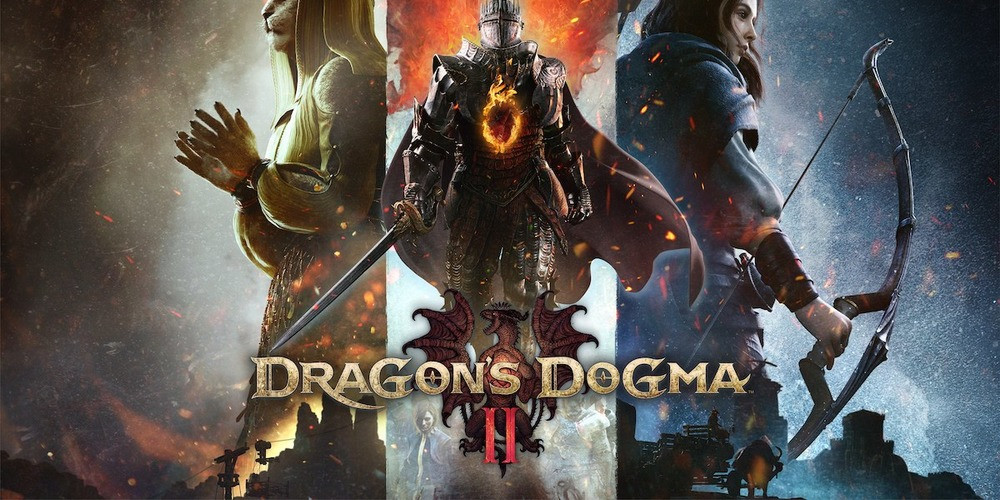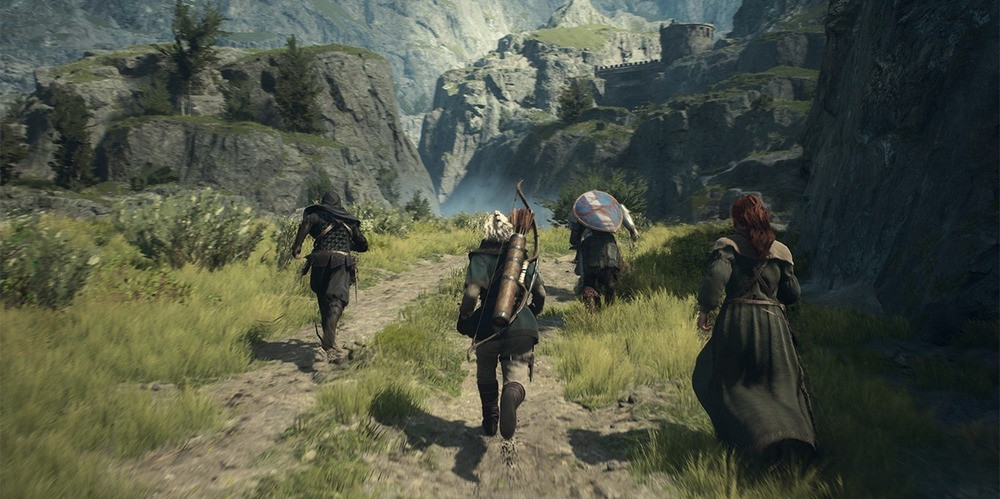Dragon’s Dogma 2: A Pioneering Blend of Open-World Mastery

Amidst the bustling arena of video game releases, Dragon’s Dogma 2 has carved out an illustrious space for itself, boasting an impressive start that's hard to overlook. The amalgamation of critical acclaim and a burgeoning player base illustrates its monumental impact on the gaming world. Achieving a Metacritic score that envies many, and shattering player count records on platforms like Steam, this sequel has not only lived up to but surpassed its predecessor’s legacy. Capcom's magnum opus has drawn players into its realm, providing an open-world adventure that's both expansive and deeply immersive.
Unparalleled Gameplay and Immersive World Design

What sets Dragon’s Dogma 2 apart is its daring approach to gameplay. This title has boldly stripped away many so-called quality-of-life features deemed essential by today's standards, choosing instead to craft a game environment that prioritizes emergent gameplay. This design philosophy results in a world that feels alive, teeming with possibilities and unforeseen challenges, thus offering a truly unique gaming experience. It's this audacity to be different that has earned the game its acclaim.
A Melange of Inspirations
While Dragon’s Dogma 2 stands out as a unique entity in its right, it graciously tips its hat to giants within the genre – Elden Ring and The Elder Scrolls series. The game adeptly borrows elements from these titans, blending them seamlessly into its fabric. From Elden Ring, it inherits a reluctance to hold the player's hand, encouraging exploration and understanding through personal trial, much like the revered Souls games. Yet, it diverges to carve its path, offering multiple approaches to objectives and ensuring that death, while a setback, isn’t as punishing.
Combat: A Balanced Affair

In the crucible of combat, Dragon’s Dogma 2 finds a harmonious balance. It presents a challenge that is stern yet not insurmountable, avoiding the punishing difficulty spikes characteristic of FromSoftware's creations. This equilibrium makes the game inviting to those who yearn for discovery and experimentation without the daunting prospect of relentless difficulty.
Dynamic World and Emergent Gameplay
Where Dragon’s Dogma 2 aligns more closely with The Elder Scrolls is in its dynamic, AI-driven world. NPCs follow their routines, reacting dynamically to the player's actions, while the environment itself feels alive and responsive. This systemic depth invites players to interact with the world in meaningful ways, experimenting and observing how the world evolves as a consequence. Through this, Dragon’s Dogma 2 offers a brand of emergent gameplay that's both rare and captivating.
Reinventing the Open World Experience

In an era where open-world games are plentiful, Dragon’s Dogma 2 distinguishes itself by fully committing to a systems-driven approach. This dedication to emergent, reactive gameplay is not only a testament to Capcom’s vision but also sets a new benchmark for what players can expect from the genre. It’s an open-world experience that feels wholly integrated and alive, standing as a testament to the potential of meticulous game design.
The Legacy and Future of Dragon’s Dogma
Dragon’s Dogma 2 doesn’t simply rest on the laurels of its predecessor or its inspirations. Instead, it builds upon their foundations, enhancing and expanding in ways that highlight its strengths. This sequel has not only solidified the series' place in the pantheon of great open-world games but also set a new standard for what's possible in the genre. As it weaves together the best elements of Elden Ring and The Elder Scrolls with its unique vision, Dragon’s Dogma 2 emerges as a beacon for future titles, offering a glimpse into the potential future of open-world gaming.

In conclusion, Capcom has masterfully crafted a game that transcends the sum of its parts. Dragon’s Dogma 2 embraces its inspirations while confidently stepping forward with its distinct identity. This blend of familiar mechanics and innovative design has created an open-world experience that is not only immersive but also groundbreaking. As players and critics alike immerse themselves in this expansive world, it's clear that Dragon’s Dogma 2 is not just a standout title of the year but a pivotal moment for the genre, setting a new standard for what an open-world game can be.
Latest posts
See more-
![The Last of Us Part II: In-Depth Character Analysis and Storyline Exploration]() Editor’s Choice
2024-08-11
The Last of Us Part II: In-Depth Character Analysis and Storyline Exploration
The Last of Us Part II is an action-adventure video game that has gained significant popularity since its inception. Developed with immense creative prowess by...
Editor’s Choice
2024-08-11
The Last of Us Part II: In-Depth Character Analysis and Storyline Exploration
The Last of Us Part II is an action-adventure video game that has gained significant popularity since its inception. Developed with immense creative prowess by...
-
![CrossCode Developer Announces Alabaster Dawn, Enters Early Access in Late 2025]() News
2024-08-12
CrossCode Developer Announces Alabaster Dawn, Enters Early Access in Late 2025
In 2021, Radical Fish Games initially introduced a new action RPG titled Project Terra. Now, they have officially named it Alabaster Dawn and announced that...
News
2024-08-12
CrossCode Developer Announces Alabaster Dawn, Enters Early Access in Late 2025
In 2021, Radical Fish Games initially introduced a new action RPG titled Project Terra. Now, they have officially named it Alabaster Dawn and announced that...
-
![Alabaster Dawn Planned to Have 30-60 Hours of Playtime, Demo Launching in Early 2025]() News
2024-08-13
Alabaster Dawn Planned to Have 30-60 Hours of Playtime, Demo Launching in Early 2025
Radical Fish Games has made an exciting announcement regarding their upcoming action RPG, Alabaster Dawn, which is set to enter early access in 2025. In...
News
2024-08-13
Alabaster Dawn Planned to Have 30-60 Hours of Playtime, Demo Launching in Early 2025
Radical Fish Games has made an exciting announcement regarding their upcoming action RPG, Alabaster Dawn, which is set to enter early access in 2025. In...
Latest Reviews
See more-
![]() Action
Cult of the Lamb
Action
Cult of the Lamb
-
![]() Action
WILD HEARTS™
Action
WILD HEARTS™
-
![]() Casual
Gacha Club
Casual
Gacha Club
-
![]() Action
Call of Duty®: Warzone™ 2.0
Action
Call of Duty®: Warzone™ 2.0
-
![]() Action
Gacha Cute
Action
Gacha Cute
-
![]() Action
Cuphead - The Delicious Last Course
Action
Cuphead - The Delicious Last Course










